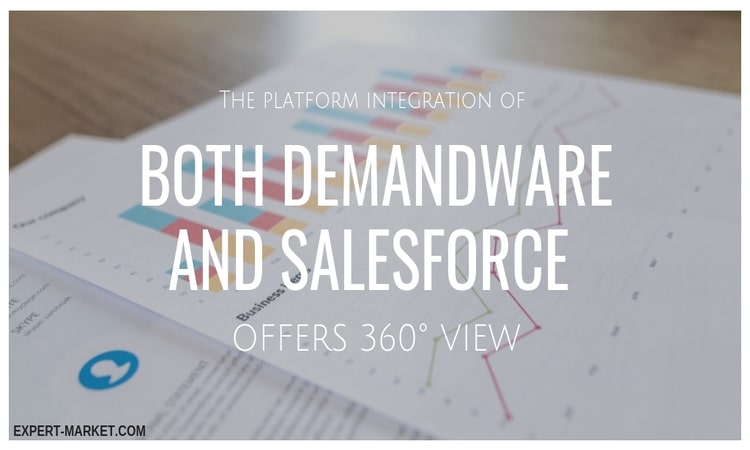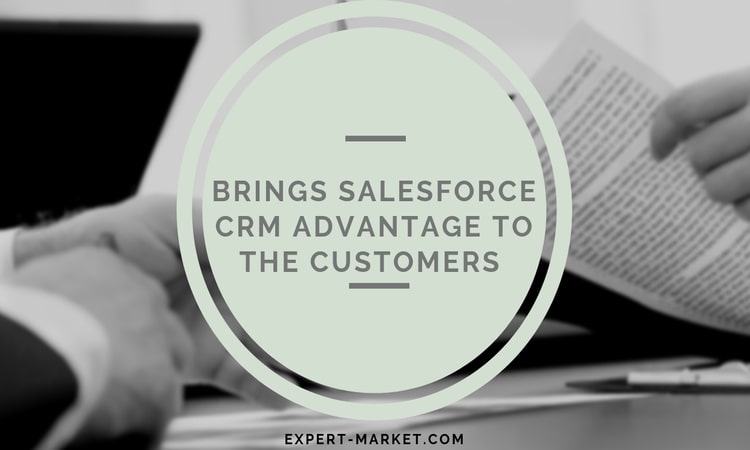The Salesforce Demandware acquisition was a big leap towards a cloud platform. With the acquisition, Salesforce focused on integrating the Commerce Cloud to a Customer Success platform. As Salesforce customers can now access the enterprise cloud commerce, the Demandware customer base can now leverage the IoT, analytics, marketing and sales advantages of Sales force.
Opportunities have increased for Demandware developers and a sudden upward shift has also been noticed in the Demandware certified developer salary due to the enhanced usability of the platform for the retail sector.
What does Demandware bring to Salesforce CRM?
Demandware Salesforce integrated platform is the right way to manage customer data from multiple touch points. While Demandware becomes the front face of the integrated environment, Salesforce is capable of extensive reporting and data handling.
The platform integration of both Demandware and Salesforce offers 360° view to acquiring customer data making it easy to understand customer purchasing behavior and instantly act upon the customer requests in real-time. With Demandware integration Salesforce landscape has changed and more customization opportunities have been created.
The advanced platform brings a better salesforce developer salary as the platform is more elaborate now and includes multi spectrum features.Retailers get the biggest benefit out of the integration of Demandware and Salesforce ecommerce platforms. With the acquisition of Demandware, unified platform retailers gain direct access to customer performance data and customer profiles.
All the ecommerce data about the customers is directed to the Salesforce CRM where it is being analyzed to engage customers in more sales. The Salesforce platform is where the retailers can view customers’ online and offline purchase data and have a deep insight into their purchase history. The sole purpose of the integrated platform is to facilitate more informed business decisions for the retailers using salesforce for ecommerce.
The acquisition is a much-planned move from Salesforce to garner more retailers by offering a detailed insight into customer data. Post the acquisition, Salesforce total revenue went up from $100 million to $120 million in 2017.
Personalized and targeted marketing
Salesforce CRM facilitates storage of entire customer data in a centralized location. The customer data collated at the location is run through case studies and shopping patterns are identified from the same. It makes the retailers aware of the customer interests so that the retailers can promote relevant products to the group of customers understudy.
It gives retailers a new found confidence about personalizing the marketing that delivers more conversions. The in-context commerce platform allows retailers a peek into the customer’s interest and personalizes the customer messages on the Demandware platform.
Streamlined services
Salesforce and Demandware integration give access to customer data to the sales representative immediately. It integrates the customer data from multiple-touch points into a single database so that each sales representative has an instant access to 360° customer data.
How this helps retailers is that while the customer service representatives can instantly resolve the customer queries and issues, they also have access to the transaction history to promote sales of the products that might be of the customer interest.
Whether the customer made the purchase online or offline, the Salesforce CRM will have all the details. On top of it with the integration of Salesforce and Demandforce, the sales representative can place orders while they are on call with the client.
Leverage omnichannel experience advantages
The sales representatives have access to the customer data making it easy to create a unified shopping experience for the customers. A great example of the same is the customers can purchase the product from a Demandware online storefront.
All this data will be fed to Salesforce CRM where the storekeepers know what product was purchased by the customers and in case the customer go ahead for in-store pick up there would be no hassles.
Salesforce certification
Salesforce certified commerce cloud digital developer is the first certification for the unified business platform that brings Salesforce CRM advantage to the customers who engage with the business over any device.
The Salesforce Certified Commerce Cloud Digital Developer certification program is curated for full stack developers. This Salesforce Developer certification makes developers capable of offering their skills and knowledge to develop an eCommerce solution that works with digital data, the onsite content of multiple channels, and engagement with multiple external channels.
A Salesforce Certified Commerce Cloud Digital Developer is ready to work as a Full-stack or Front-end developer or as a technical architect.
- Salesforce Certifications for Administrators
- Salesforce Certifications for Developers
- Salesforce Certifications for Architects
- Salesforce Certifications for App Builders
- Salesforce Certifications for Implementation Experts or Consultants
- Salesforce Certifications for Marketers
- Salesforce Certifications for Pardot Experts
- Salesforce Certifications for CPQ Specialists
The Salesforce admin Certification for Commerce Cloud Digital Developer is trained on:
- Multiple elements of a Commerce Cloud Digital site and how they interact.
- Creating elements to add reusable functionalities.
- Creating and managing jobs via job scheduler
- Integrating open-source Web services to the platform
- Integrating Open Commerce APIs
Conclusion
Salesforce and Demandware acquisition is an integrated platform that opens up new opportunities for the retailers to engage with customers who are distributed over multiple devices and channels. The platform is in huge demand by the retailers as it holds immense potential to offer them competitive advantages.





























